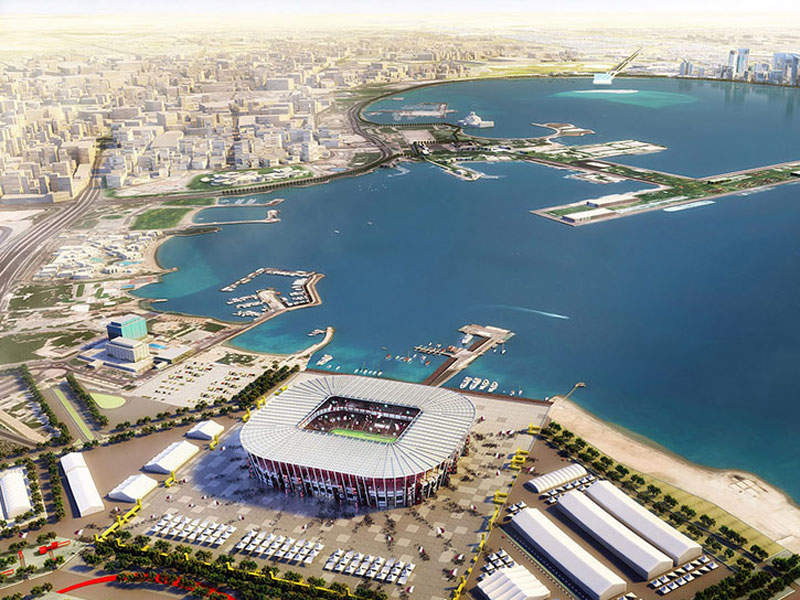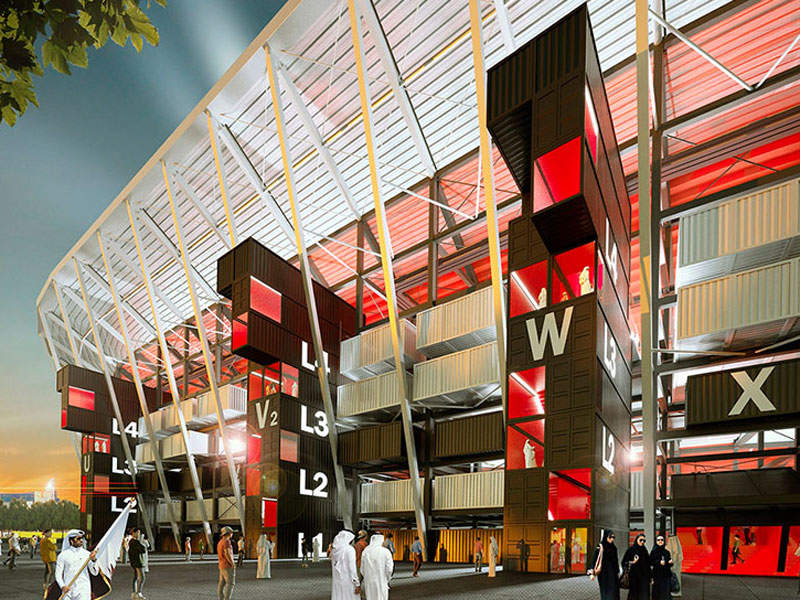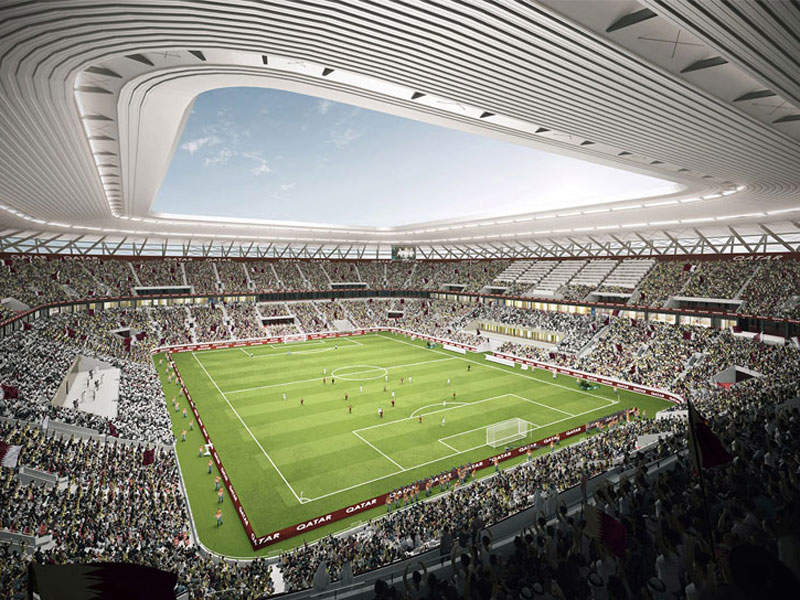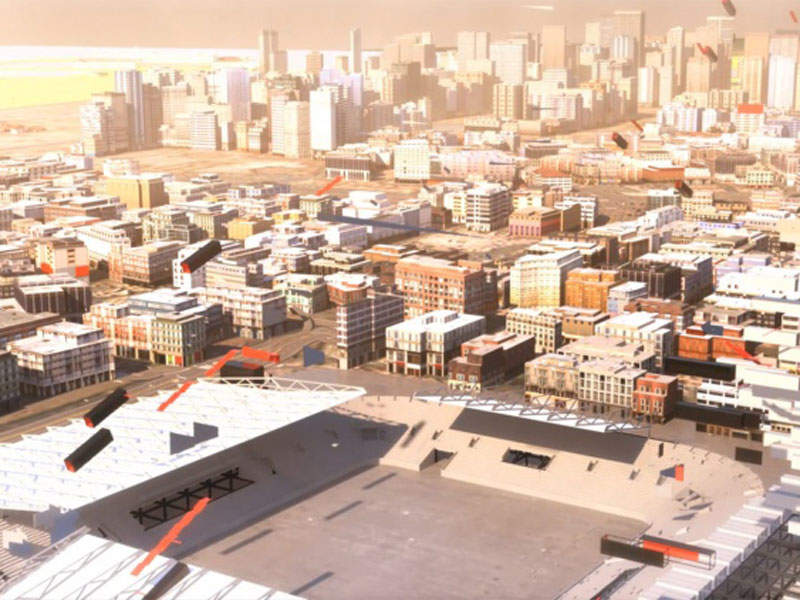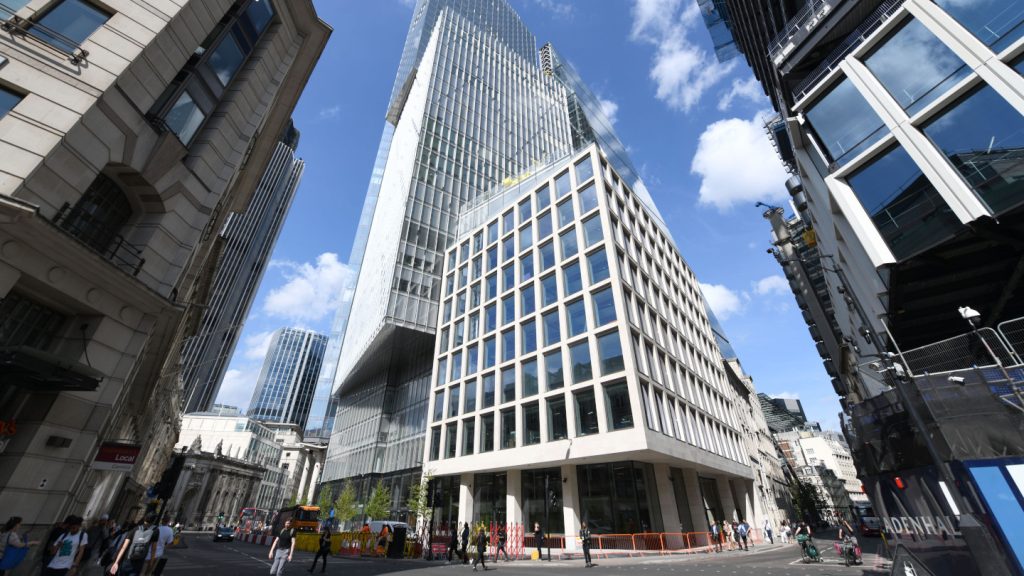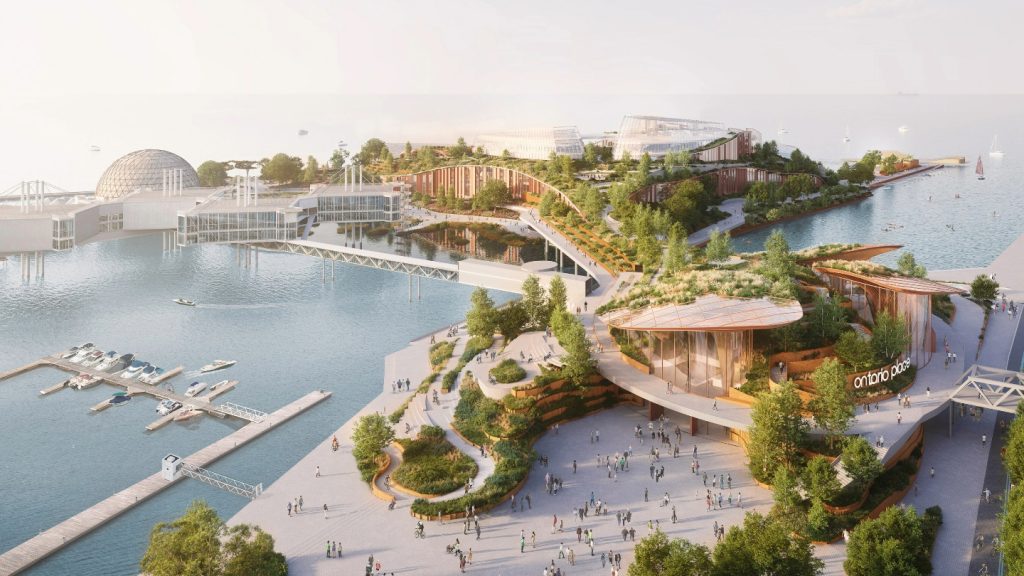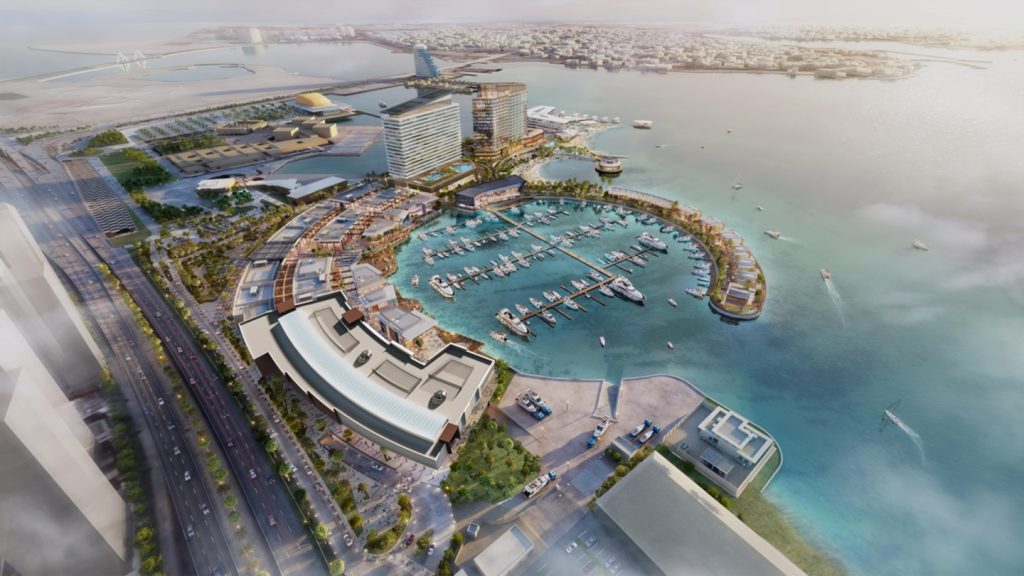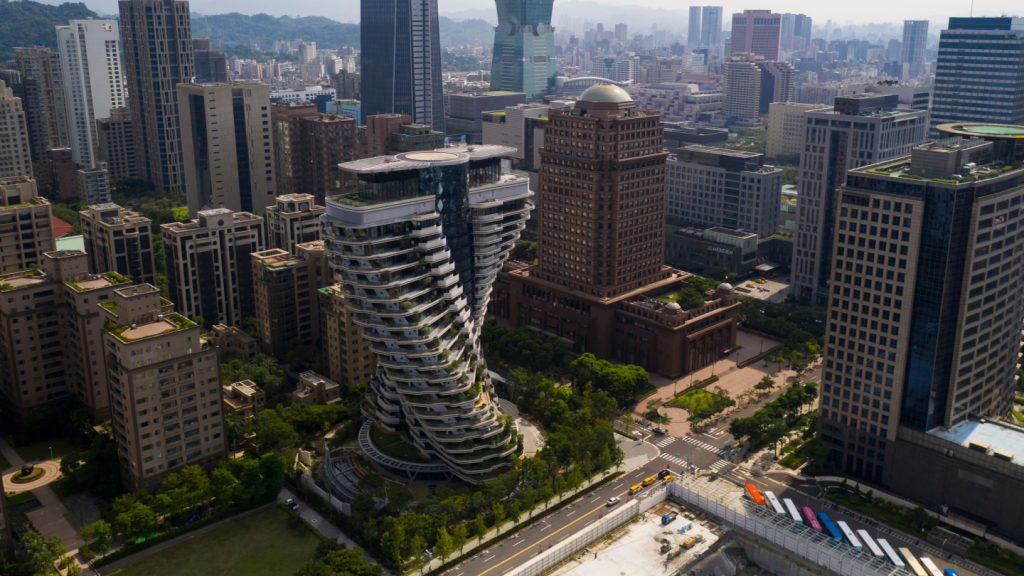The Ras Abu Aboud Stadium is a 40,000-seat waterfront stadium under construction in the Ras Abu Aboud area of Doha, Qatar. It is one of the eight venues hosting the group and quarter-final matches of the upcoming 2022 FIFA World Cup.
Supreme Committee for Delivery and Legacy is the developer of the stadium, which is anticipated to be completed in 2020.
The stadium design was unveiled in November 2017, and construction began in late-2017. Excavation works of the stadium foundations began in February 2018, while construction is expected to commence in the second quarter of 2018.
Ras Abu Aboud Stadium location
The Ras Abu Aboud Stadium is being developed on a 450,000m² waterfront site on Doha’s shore, 1.5km from the city’s Hamad International Airport. The stadium will directly connect to the centre of Doha and Al Wakrah.
Fans are expected to arrive at the stadium directly from West Bay, Doha Corniche and Hamad International Airport, as well as via the Doha Metro Gold Line.
Ras Abu Aboud stadium design details
The Ras Abu Stadium is set to be the first fully demountable stadium to host the FIFA World Cup. It will be made up of a fully modular, demountable and transportable layout.
The main structure of the stadium will feature a steel frame representing a high-bay warehouse divided into different blocks. The project will use shipping containers as one of the main building blocks. The majority of the stadium’s functions will be accommodated inside the shipping container modules.
All the elements of the stadium, including ceiling panels, grandstands, stalls and sanitary fittings, can be easily segregated and transported as certified shipping containers from the harbour located in the direct neighbourhood. The elements can be re-assembled on another site or converted into multiple smaller venues after the completion of the tournament.
The stadium design will not only reinforce Qatar’s commitment to leave a physical legacy proportionate to Qatar’s needs but also herald a new concept of sustainable tournament infrastructure, which will help other countries to host such mega-events.
Sustainable features of the Ras Abu Aboud stadium
The main sustainable feature of the Ras Abu Aboud project is lower construction costs. The utilisation of prefabricated and modular elements during the stadium design will reduce the waste generated during the production of stadium components, as well as during construction. The modular approach will also minimise the construction time of the venue.
The stadium structure will also have a reduced CO2 footprint due to minimal construction material used and waste generated. The sustainable approach is expected to help the stadium achieve four-star Global Sustainability Assessment System (GSAS) certification.
The stadium will be converted into a retail space and large public park with waterfront development after completion of the World Cup, creating an entertainment opportunity for the local community.
The redeveloped area will offer stunning views of Doha’s landmark building Corniche, and the downtown West Bay area.
Contractors involved
Qatar-based HBK Contracting Company (HBK) was awarded the main works contract for the Ras Abu Aboud stadium.
DCB-QA is the project architect, while Time Qatar was engaged as the project manager.
Fenwick Iribarren Architects (FI-A), in association with Schlaich Bergermann Partners and Hilson Moran, was engaged as the stadium designers. As part of the contract, Hilson Moran provided mechanical, electrical and public health (MEP) services in addition to sustainability, acoustics, vertical transportation, and security consultancy.
Nowy Styl Group brand Forum Seating will supply its Omega sport seats for the stadium.

